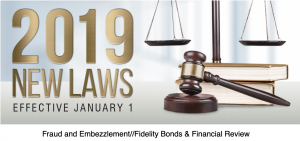 The COVID-19 pandemic has disrupted the community association industry both in terms of operations and morale. Community association members, board members, and community managers are presumably staying home to avoid contracting the coronavirus, and are not meeting in person. This seems to have led to a reluctance, by some association boards, to conduct business. Further, the social distancing requirements imposed by our State and local governments are eliminating social interaction that is critical to the functioning of the community. Along with this, the fear and uncertainty of the COVID-19 pandemic has altered the mood and attitude of board members and professionals involved with operating the community association.
The COVID-19 pandemic has disrupted the community association industry both in terms of operations and morale. Community association members, board members, and community managers are presumably staying home to avoid contracting the coronavirus, and are not meeting in person. This seems to have led to a reluctance, by some association boards, to conduct business. Further, the social distancing requirements imposed by our State and local governments are eliminating social interaction that is critical to the functioning of the community. Along with this, the fear and uncertainty of the COVID-19 pandemic has altered the mood and attitude of board members and professionals involved with operating the community association.
The disruption has become apparent and severe. However, we must examine the “silver linings” and “play with the cards we have been dealt” – so to speak – in order to preserve the integrity of our communities and functioning of same. The business that needed to be done before we all retreated to our homes to be safe still needs to get done and the longer boards wait to do that business, the more likely it is that there will be complications. Below are a few ideas that board members should consider moving forward in the face of this pandemic that may last for months.
1. Meetings. While in-person meetings should be avoided, associations may still be able to conduct meetings via conference call and/or videoconference (e.g., Zoom). The Davis-Stirling Act sets out a procedure for telephone conference meetings, but the Code requires that someone be at a physical location where the owners can listen to the call via speakerphone and participate during open forum. We believe that the ongoing pandemic would warrant a substantial compliance approach. That is, associations can conduct the meeting via telephone or video conference and attempt to comply with the applicable statutes, as much as possible, while at the same time complying with the State and City social distancing orders now in effect. This way, associations may still conduct business and hold meetings so that the common area components continue to be maintained, insurance policies do not lapse, and other obligations like enforcement of the Governing Documents are met. In other words, California community associations can still function while the board members and management are at the same time complying with government mandated social distancing requirements.
 The COVID-19 pandemic resulted in the closures of community association pools, spas, tennis courts, gyms and other recreational facilties. The good news is that the State of California and the 58 counties are in the process of issuing new orders regarding the use of community association pools, tennis courts and other recreational facilities. The attorneys at SwedelsonGottlieb have researched all 58 counties and follow this link to our listing of same and their current orders regarding pools tennis courts and other facilities. Changes to the orders and guidance cited to in our listing occur frequently and this list is as of May 27, 2020. And as the different counties are progressing through the phased reopening plans at different paces, each association should check regularly with the State, County, and City for the most up-to-date orders and guidelines.
The COVID-19 pandemic resulted in the closures of community association pools, spas, tennis courts, gyms and other recreational facilties. The good news is that the State of California and the 58 counties are in the process of issuing new orders regarding the use of community association pools, tennis courts and other recreational facilities. The attorneys at SwedelsonGottlieb have researched all 58 counties and follow this link to our listing of same and their current orders regarding pools tennis courts and other facilities. Changes to the orders and guidance cited to in our listing occur frequently and this list is as of May 27, 2020. And as the different counties are progressing through the phased reopening plans at different paces, each association should check regularly with the State, County, and City for the most up-to-date orders and guidelines. HOA Law Blog
HOA Law Blog



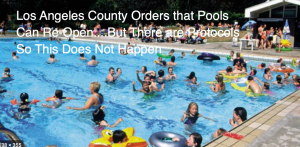 From the attorneys at SwedelsonGottlieb, Community Association Attorneys
From the attorneys at SwedelsonGottlieb, Community Association Attorneys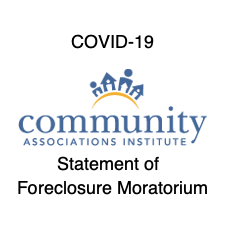 Earlier this month, CAI released a
Earlier this month, CAI released a 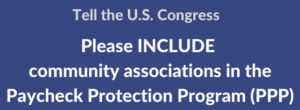 Prepared by the California Community Association Attorneys at SwedelsonGottlieb
Prepared by the California Community Association Attorneys at SwedelsonGottlieb 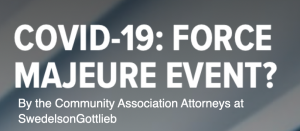 The spread of the coronavirus/COVID-19 has caused and will likely continue to cause unexpected interruption in the business of many California community associations. Many of our association clients are in the middle of large common area refurbishment and restoration projects. With increasing restrictions and/or recommendations by public officials and others intended to control the spread of the coronavirus, contractors/vendors may suspend or cease services/work and advance “force majeure” as a defense to the association’s breach of contract claim. It is important that board members and managers understand what force majeure means and how to respond when a contractor/vendor suspends or seeks to suspend their performance due to the coronavirus citing a force majeure clause contained in the contract between the association and the contractor or vendor.
The spread of the coronavirus/COVID-19 has caused and will likely continue to cause unexpected interruption in the business of many California community associations. Many of our association clients are in the middle of large common area refurbishment and restoration projects. With increasing restrictions and/or recommendations by public officials and others intended to control the spread of the coronavirus, contractors/vendors may suspend or cease services/work and advance “force majeure” as a defense to the association’s breach of contract claim. It is important that board members and managers understand what force majeure means and how to respond when a contractor/vendor suspends or seeks to suspend their performance due to the coronavirus citing a force majeure clause contained in the contract between the association and the contractor or vendor. 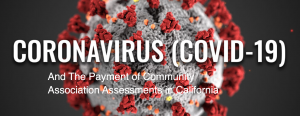 Recently, an attorney that also represents California community associations sent out a newsletter that dealt with assessment collection during the pandemic. We already addressed this issue in our
Recently, an attorney that also represents California community associations sent out a newsletter that dealt with assessment collection during the pandemic. We already addressed this issue in our  The COVID-19 pandemic has disrupted the community association industry both in terms of operations and morale. Community association members, board members, and community managers are presumably staying home to avoid contracting the coronavirus, and are not meeting in person. This seems to have led to a reluctance, by some association boards, to conduct business. Further, the social distancing requirements imposed by our State and local governments are eliminating social interaction that is critical to the functioning of the community. Along with this, the fear and uncertainty of the COVID-19 pandemic has altered the mood and attitude of board members and professionals involved with operating the community association.
The COVID-19 pandemic has disrupted the community association industry both in terms of operations and morale. Community association members, board members, and community managers are presumably staying home to avoid contracting the coronavirus, and are not meeting in person. This seems to have led to a reluctance, by some association boards, to conduct business. Further, the social distancing requirements imposed by our State and local governments are eliminating social interaction that is critical to the functioning of the community. Along with this, the fear and uncertainty of the COVID-19 pandemic has altered the mood and attitude of board members and professionals involved with operating the community association.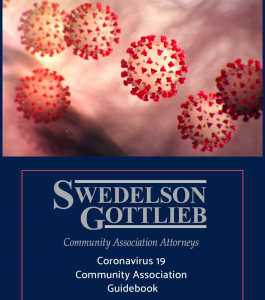 It is not a hoax; it is a pandemic. And as a result, we are receiving inquiries from board members and managers concerning what community associations should be doing to address the coronavirus (COVID-19) pandemic and the impact of same on their communities. To address these questions, SwedelsonGottlieb published a guidebook that explains, among other things, why we do not believe that community associations have any direct responsibility to deal with the coronavirus; rather it is each residents responsibility to take steps to limit their exposure to the virus to avoid contracting the virus. That said, there are some commonsense things that should be kept in mind. And there are employees and staff to consider.
It is not a hoax; it is a pandemic. And as a result, we are receiving inquiries from board members and managers concerning what community associations should be doing to address the coronavirus (COVID-19) pandemic and the impact of same on their communities. To address these questions, SwedelsonGottlieb published a guidebook that explains, among other things, why we do not believe that community associations have any direct responsibility to deal with the coronavirus; rather it is each residents responsibility to take steps to limit their exposure to the virus to avoid contracting the virus. That said, there are some commonsense things that should be kept in mind. And there are employees and staff to consider. 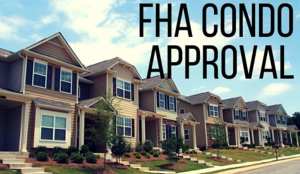 The U.S. Department of Housing and Urban Development (HUD) has finally published the long-awaited final revisions to the Federal Housing Administration’s (FHA) condominium project approval rules. The FHA does not originate loans for purchasing condos, but rather insures these loans for borrowers who might not otherwise qualify for traditional financing requiring a 20% down payment. In practice, these changes will give more people access to FHA-insured financing, which should in turn provide many Californians with a better chance of purchasing a condo. The new rules go into effect on October 14, 2019.
Some of the most significant changes in the FHA regulations include:
The U.S. Department of Housing and Urban Development (HUD) has finally published the long-awaited final revisions to the Federal Housing Administration’s (FHA) condominium project approval rules. The FHA does not originate loans for purchasing condos, but rather insures these loans for borrowers who might not otherwise qualify for traditional financing requiring a 20% down payment. In practice, these changes will give more people access to FHA-insured financing, which should in turn provide many Californians with a better chance of purchasing a condo. The new rules go into effect on October 14, 2019.
Some of the most significant changes in the FHA regulations include: